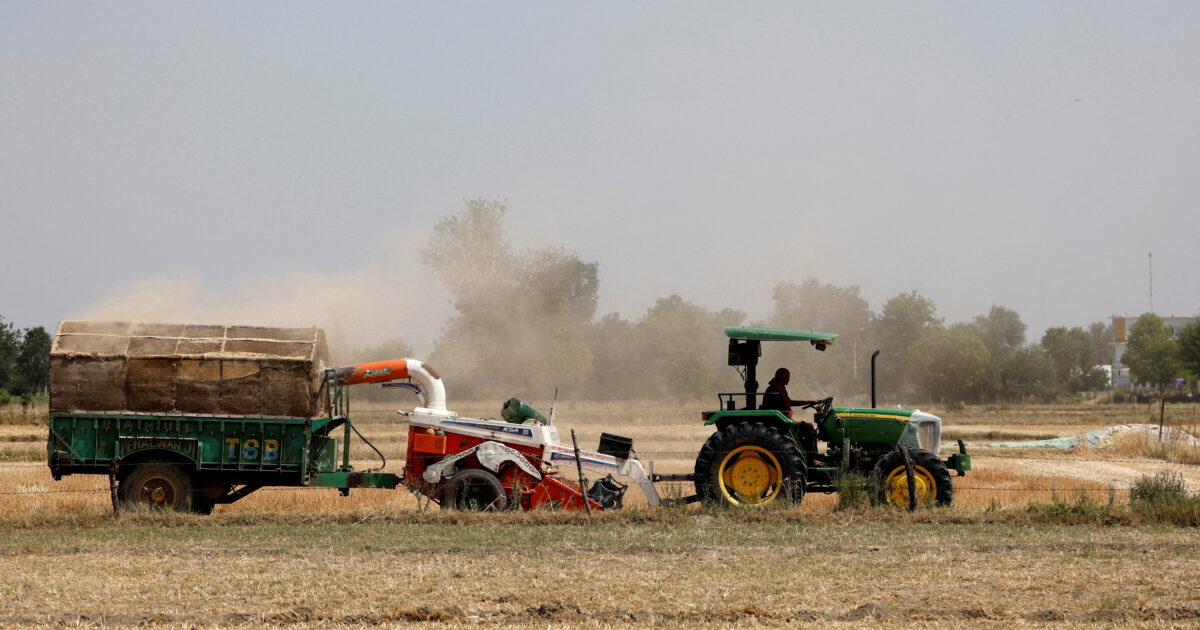In a critical on the subject of agricultural subsidiestwo months, Greece is called upon to meet three milestones to avoid new finesas was also confirmed during the meeting held last Thursday by the Deputy Prime Minister Kostis Hatzidakis with the head of the Directorate General for Agricultural Policy of the Commission Elisabeth Werner.
At a time, that is, in which the agricultural sector has entered into a peculiar “memorandum” due to the OPEKEPE scandal, the government is called upon to implement the tough demands of the European Commission to avoid new fines or a cut in agricultural subsidies.
All in all, this difficult task has been undertaken by Kostis Hatzidakis, who talks with the Commission and coordinates the government’s actions. Together with the Minister of Rural Development and Food Kostas Tsiaras and the rest of the political leadership of the ministry, the commander of AADE Giorgos Pitsilis and the new president of OPEKEPE Yiannis Kavvadas. K. Hatzidakis and the government are thus trying to strike a balance between the need to satisfy the Commission’s demands and the need to pay the farmers as soon as possible.
In the meeting, in particular, that the deputy prime minister had on Thursday with the head of the General Directorate of Agricultural Policy of the Commission Mrs. Werner, according to information it was established the progress of the Greek side and that finally the government will manage to ensure the smooth flow of agricultural subsidies.
In detail, as confirmed at the meeting, Greece has three critical milestones ahead of it:
- To submit by November 4 its proposal for a reliable system of management and control of agricultural subsidies.
- To give the advance payment of the basic aid of 2025 by the end of November, after the checks and cross-checks requested by the Commission have been carried out.
- The law on the abolition of OPEKEPE and the transfer of its powers to AADE should be passed by December.
Regarding the first milestone, the management and control system of agricultural subsidies (IACS), significant work has been done – according to competent sources – in the last two months with a continuous exchange of documents and data between the Commission and the Greek side (remember that a special task force has been set up since August).
In this matter, in addition to ensuring a reliable system of controls, a reliable system of registration of agricultural land and a reliable system of registration of livestock are also required. For the issue of the registration of agricultural lands, the solution of the ATAK (property identification number) has been found, which was mandatory in this year’s declarations for the basic subsidy for farmers. While for the registration of the livestock, the new KYA on pastures will be issued within the next week, through which it will be seen that the livestock will be calculated in relation to the farmers’ invoices for meat, milk and animal feed.
Regarding the second prerequisite, that of the basic aid, the platform for submitting farmers’ declarations closed last week (accepting farmers’ declarations until October 20). Thus, OPEKEPE has started the processing of the declarations and has drawn up the relevant audit plan requested by the European Commission. The government is under a lot of pressure from the farming world to pay the basic support advance as soon as possible (in previous years it was paid by 30 October).
Now, the aim is to have the basic aid advance paid by the end of November. Let it be clarified that it cannot be given earlier, because controls must be carried out, it cannot be given later either, because then Greece will face the risk of not being able to absorb the Community funds.
Finally, for the third prerequisite, the abolition of OPEKEPE and the transfer of its responsibilities to AADE, the Commission puts a lot of emphasis – and this also emerged during the last meeting with Kostis Hatzidakis.
In fact, the relevant bill is being drawn up and will be passed by the Council of Ministers next week (the bill will be presented by the deputy prime minister, according to information). From there, the government plans to submit the bill to Parliament by the end of November and vote in December.
In conclusion, we are entering a critical two months that will judge almost everything for the agricultural sector, and what Kostis Hatzidakis tells the partners is typical: that is, we have a big uphill road ahead of us with dangerous turns, but there is no margin for error!
